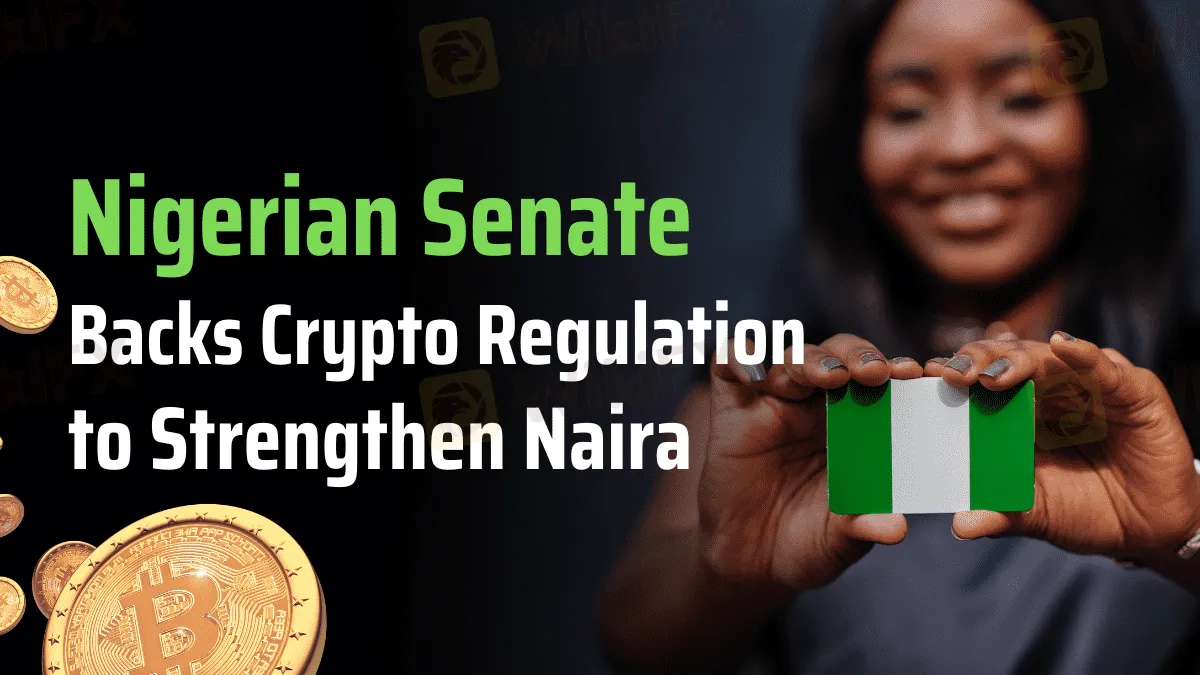简体中文
繁體中文
English
Pусский
日本語
ภาษาไทย
Tiếng Việt
Bahasa Indonesia
Español
हिन्दी
Filippiiniläinen
Français
Deutsch
Português
Türkçe
한국어
العربية
Nigerian Senate Backs Crypto Regulation to Strengthen Naira
Abstract:Meta Description: The Nigerian Senate supports cryptocurrency regulation to safeguard investors and strengthen the naira amid inconsistent policies. This move aims to boost economic stability and attract investments.

The Nigerian Senate Committee on Capital Markets has supported cryptocurrency trading regulation to strengthen the local currency and safeguard investors. The committee's move follows worries about Nigeria's confusing digital asset policy, which might hurt the country's economy.
The committee chairman, Osita Izunaso, noted Nigeria's inconsistent cryptocurrency legislation. The Nigerian Securities and Exchange Commission (SEC) has indicated a readiness to regulate crypto assets, but the CBN has consistently suppressed its expansion. Inconsistency has confused and may cost the nation economically.
Izunaso made these statements after the committee heard from recently appointed Nigerian SEC director-general Emomotimi Agama. Izunaso said that Nigerians have continued to trade crypto despite the CBN's attempts, making regulation the only feasible option. Nigeria may lose out owing to its ambiguous cryptocurrency posture, he said.
The February 2021 CBN order banned banks from supporting crypto transactions. Policy changed when previous CBN governor Godwin Emefiele left. Reversing this command was a great step toward balance.

However, Binance was raided for accused currency speculators when the naira rapidly depreciated against the U.S. dollar earlier this year. Global crypto exchanges were ordered to delist the naira, and Binance was punished for currency manipulation.
Nigeria is one of the top five Bitcoin-interested nations despite these hurdles. This shows how important Bitcoin is to the economy.
To protect the naira, Izunaso advised Bola Tinubu to build capital and crypto markets. He believed that improving these markets would increase financial system liquidity and reduce economic pressure on the local currency.
“That's hammering the naira and making it weaker against other currencies. However, developing our capital market and crypto market will increase system liquidity. That will ease our issues ”Izunaso said.
Pro-innovation Emomotimi Agama promises to revive the Nigerian capital market. He wants to launch creative initiatives that create world-class firms and change the market narrative. Agama supports the committee's recommendation for a more organized and regulated crypto ecosystem to attract investments and boost economic development.
In conclusion, the Nigerian Senate Committee on Capital Markets wants explicit cryptocurrency trading regulations. This step is crucial for investment protection and naira strengthening. The committee's call to action aims to enhance Nigeria's economy and stabilize its currency via digital assets.

Disclaimer:
The views in this article only represent the author's personal views, and do not constitute investment advice on this platform. This platform does not guarantee the accuracy, completeness and timeliness of the information in the article, and will not be liable for any loss caused by the use of or reliance on the information in the article.
Read more

Forex Hedging: Is It a Trader’s Safety Net or Just an Illusion?
In the volatile world of forex trading, risk is inevitable. One widely used strategy is forex hedging, which is a useful technique designed not to eliminate risk entirely, but to reduce its potential impact. As global economic uncertainty persists, understanding how hedging works could be an essential addition to a trader’s toolkit.

OctaFX Back in News: ED Attaches Assets Worth INR 134 Cr in Forex Scam Case
The Enforcement Directorate (ED) in Mumbai has attached assets worth around INR 131.45 crore. This included a luxury yacht and residential properties in Spain. Read this interesting story.

Is forex trading profitable?
Many traders think that forex trading can make quick profits, but the truth is more complex. While some people do make money in the forex market, others fall prey to its many pitfalls because, in this industry, the scams and misleading promises are widespread.

Admiral Markets: A Mix of Regulation and Risk
Despite multiple licenses, Admiral Markets presents potential red flags that traders should not ignore, including a suspicious clone alert and disclosure by Malaysia’s Securities Commission.
WikiFX Broker
Latest News
He Thought He Earned RM4 Million, But It Was All a Scam
CryptoCurrency Regulations in India 2025 – Key Things You Should Know
OctaFX Back in News: ED Attaches Assets Worth INR 134 Cr in Forex Scam Case
Trump inaugural impersonators scammed donors out of crypto, feds say
Ethereum is powering Wall Street's future. The crypto scene at Cannes shows how far it's come
Forex Hedging: Is It a Trader’s Safety Net or Just an Illusion?
US debt is now $37trn – should we be worried?
OPEC+ members agree larger-than-expected oil production hike in August
Dukascopy Ends EOS/USD Trading Amid Liquidity Issues
FIBO Group MT5 Cent Account with Ultra-Leverage up to 1:5000 for Beginners
Currency Calculator


